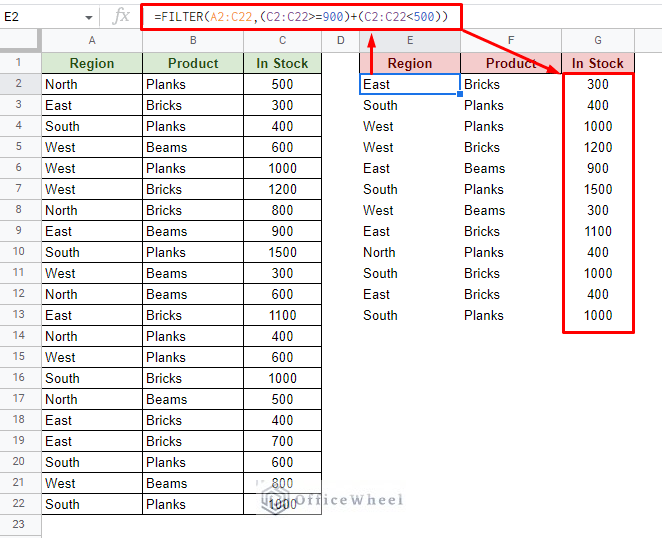In this article, we will take a look at a few different ways to remove the comma (,) from data in Google Sheets. Commas can be found in unexpected places in ...
Updating data can involve both adding and removing other data to it. Things become trickier when we have hundreds of updates to perform, which is a common ...
While there are a number of ways to do so, the REGEXREPLACE function is a great way to replace multiple values in Google Sheets, especially for string ...
In this simple tutorial, we will look at how we can substitute multiple values in Google Sheets. Unsurprisingly, our primary method revolves around the ...
The QUERY function is perhaps the most customizable function to search and present specific values in Google Sheets from a source. So, in this article, we will ...
Typically, datasets are presented vertically, with column headers followed by a vertical list of data. But sometimes, you may have data that is given ...
When we filter for multiple conditions in a spreadsheet, we follow one of the two approaches to the relationship of the said conditions: AND or OR. In this ...
Filtering is a primary process that is utilized in most spreadsheets, especially those that contain a large amount of data. While most spreadsheet applications ...
Filtering with multiple criteria is a common requirement for most spreadsheets. However, doing so gives rise to logical calculations of how these conditions ...
Filters are a great tool to help sift through a large set of data and bring out the important ones depending on various conditions. Unlike Excel, Google ...
The most common and default approach to filtering is to look for a certain value in a data range. But what if we wanted to filter entries if it does not ...
Cell references can be a huge deal when it comes to automating many spreadsheet features, including filtering. Keeping that in mind, in this article we will ...
The REGEXMATCH function of Google Sheets can help us easily filter for text conditions. Not only that but also thanks to the use of regular expressions, ...
Filtering in Google Sheets is a core process required by most analysts. While there are a plethora of great filter conditions already available in Google ...
Using a custom formula is the easiest way to filter by a specific condition in Google Sheets. While the filter feature has improved by leaps and bounds, ...
- « Previous Page
- 1
- 2
- 3
- 4
- 5
- …
- 14
- Next Page »
















Hello,
If you want to specify which column’s changes will trigger the timestamp, all you have to do is include an IF ELSE statement inside the existing one. For example, let’s say that the SL column is Column A in the sheet:
if(sheetName == 'Stock'){ if(range.getColumn() !== 1) return else{ var new_date = new Date(); spreadSheet.getActiveSheet().getRange(row,4).setValue(new_date).setNumberFormat("MM/dd/yyyy hh:mm:ss"); } }So, if changes are made to any column other than column A or 1, no timestamps will be triggered.
For multiple triggers, we recommend different scripts for each.
I hope it helps!
Hi Max,
I am assuming that you are thinking about extracting the letters ABC from ABC-123. In this case, you can approach it in two ways without even using wildcards.
The first way is to use text functions to extract the number of characters from the string:
=LEFT(B2,LEN(B2)-4)
The LEN(B2)-4 removes the last 4 characters from the string.
For a more dynamic approach, you can look for the hyphen/dash as a delimiter to remove characters before or after it. In this case, to get ABC from ABC-123, the formula will be:
=MID(B2,1,FIND(“-“,B2)-1)
Just replace “-” with any delimiter of your choosing.
However, if you still want to extract using regular expression to get ABC from ABC-123, use this:
=REGEXREPLACE(B2,”[0-9-]”,””)
The regular expression to remove all digits and hyphens is given by [0-9-].
I hope this helps!